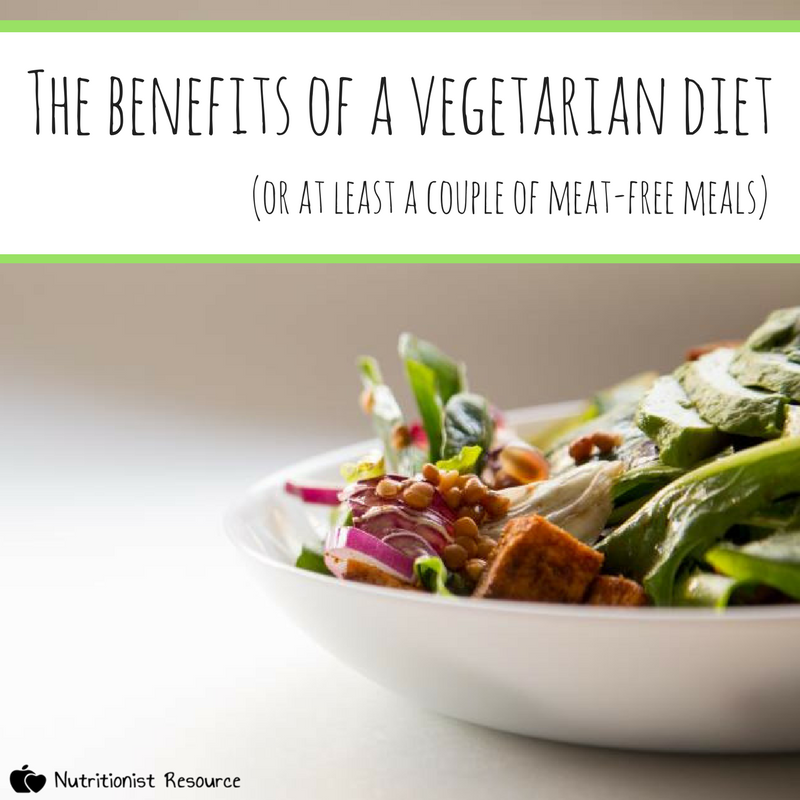The benefits of a vegetarian diet
Vegetarian, vegan and plant-based diets are seemingly becoming more popular, but what are the benefits of reducing our animal-product consumption? We speak to nutritionist Susan Burry, who explains more.

Firstly, what are your views on vegetarian and more plant-based diets?
Vegetarian or more plant-based diets can be more healthy if they are well-planned and have added variety.
As the nutrition consultant for the Enquiry Service of the Vegetarian Society, it has become apparent to me that vegetarians are so motivated and passionate about their food preferences. They are so very keen to avoid animal products, protect the environment and stay healthy. They don’t need any encouragement or motivation, they possess this already. What they do need is support and assistance with food choices to ensure they have a wide variety of foods to maintain a healthy diet.
What are the health benefits of going meat-free and/or reducing our animal product intake?
Research has shown that vegetarian diets can provide health benefits as compared to non-vegetarians. From a research point of view, studies have found a lower risk of mortality from ischemic heart disease in vegetarians compared to non-vegetarians. Vegetarian diets can help achieve a lower body mass index and blood lipid levels, therefore modifying risk factors related to heart disease.
Diabetes UK stated that it’s estimated that more than one in 17 people in the UK have type 2 diabetes (diagnosed or undiagnosed). Since 2013, there have been 3.2 million people who have been diagnosed with diabetes in the UK. By 2025, it’s estimated that this number will rise to five million, but studies suggest that a vegetarian diet is associated with a reduced risk of developing type 2 diabetes. This may be associated with several health benefits of a vegetarian diet, such as lower body weight observed in vegetarians compared to non-vegetarians. Their diets are higher in dietary fibre and low glycemic indexed foods, mostly from whole grains, soya, vegetables and legumes and of course, reduced consumption of processed red meats. Fruit and veg are known to fight disease, help with diabetes, lower cholesterol and help you lose weight. Also, vegetarians can easily get their 5-a-day.
Any common pitfalls of being a vegetarian? For example, managing protein intake, common nutrient deficiencies?
A number of nutrients can be a little more challenging for vegetarians to obtain sufficient quantities of in their diet, but with proper meal planning, this can be easily met. Commonly these include iron, vitamin B12 and protein as a question I get asked repeatedly.
Iron is an important mineral for women and it can be common to have a deficiency. It’s important to have enough iron in your diet on a daily basis to improve your storage of iron and maintain it at a good level for health and energy. Practically, vegetarians will need to consume more iron from vegetarian foods due to lower absorption from these foods containing non-haem iron.
In the UK, the recommended daily intake for iron for adults over the age of 50 is 8 mg per day. Due to lower absorption in vegetarian diets, other countries such as Canada and the USA have recommended iron intakes of 80% more than 8 mg i.e. 14.4 mg/day to compensate for the lower rate of absorption.
Practical suggestions to improve iron intake and absorption:
- Include a vitamin C food with each meal or a high-iron food to increase absorption.
- Do not consume high calcium food or a calcium supplement with meals, as it interferes with iron absorption. Have these foods in-between meals.
- Avoid tea as it contains tannins, which interfere with iron absorption.
Add a food high in vitamin C at the same meal to improve absorption of iron in these foods. Foods with over 2 mg of iron per serving include spinach, tomato puree, edamame or lima beans, asparagus, porridge, cream of wheat, some dry cereals, oat bran, soya yoghurt, tofu, lentils, beans, nuts, tempeh and blackstrap molasses.
Vitamin B12 is an important nutrient, which is mostly found in animal products and therefore, for vegetarians, taking a supplement may sometimes be necessary. Eggs and dairy foods contain vitamin B12. If dairy-free, fortified foods containing vitamin B12 such as yeast extract, soya milk, yoghurts and desserts, breakfast cereals and certain brands of rice drinks and oat drinks should be included as part of a healthy diet. Vitamin B12 deficiency can be caused by a low intake of the vitamin from foods, or due to mal-absorption problems, which we commonly incur as we get older.
Protein from foods such as Quorn, texture vegetable product (TVP), soya foods, dairy, beans, pulses and nuts, but a variety of foods is always recommended for a healthy diet and to maximise digestibility and the quality of protein in various food sources. Protein quality is based on digestibility and amino acid content. Absorption of protein varies depending on the type of food source, a variety is always best to increase digestion and meet protein needs. Also, to improve the quality of plant proteins, variety is also key. These sources provide other nutrients besides protein, such as required minerals and vitamins.
Recommended daily protein needs is about 0.8g/kg of body weight. There is some research that this amount should be higher for vegetarians, but currently, there is no specific higher recommendation for vegetarians. This is due to lower digestibility of plant proteins.
A healthy diet is about moderation and variety, so please try and have as much variety as you can in all foods, including protein sources. It would be good to have different sources of protein, such as in cereals and breads, rice, quinoa and pasta to increase the variety of plant protein sources. Nuts and nut butters including almonds, walnuts and cashews, along with milk can also be good sources of protein.

Find a nutritionist dealing with Healthy eating
All nutrition professionals are verified





